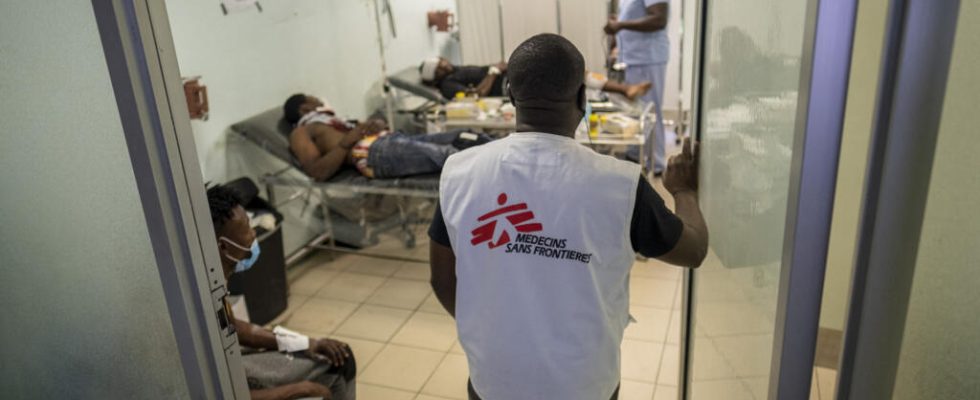Haitians continue to suffer the consequences of armed gangs. While the country is still struggling to make health care accessible, hospitals have been forced to suspend their activities. The few rare establishments that function are sometimes overwhelmed with a reduced staff, because the doctors cannot move.
In Haiti, the gang war does not even spare the sick. Like the hospital Albert Schweitzer, in Deschapelles, Doctors Without Borders (MSF) announced this Thursday, March 9, the suspension of its activities in Cité Soleil, a commune in the capital, Port-au-Prince. A decision taken because of the clashes that took place near his establishment, located in the town.
” We have been forced to temporarily close our hospital in Cité Soleil, Haiti, due to violent clashes between heavily armed rival groups taking place around the hospital writes Amnesty International on its Twitter account.
MSF says it is unable to guarantee the safety of its staff and patients. This closure, added to the context of the crisis, will directly hit the inhabitants of Cité Soleil.
In Port-au-Prince, the hospitals that are still functioning are sometimes overwhelmed because they alone cannot accommodate too many patients. Added to this is the inability of doctors to travel, due to the insecurity in the country.
In recent days, health personnel have been forced to work in alternating shifts, because of gunshot wounds which add to an already difficult to contain crowds.
Meanwhile, the resident doctors’ strike that began last December to demand better working conditions and salary increases continues at the University Hospital of Port-au-Prince, the largest hospital in the country.
For this underprivileged district of Port-au-Prince, the closure of the MSF hospital is a disaster, explains Alexandre Marcou, communications manager for Doctors Without Borders.
“Unfortunately harmful, even dramatic consequences”
” Unfortunately, the consequences are harmful, even dramatic, in a town with more than 300,000 inhabitants, where there are very few healthcare structures. It is a population that lives in very complicated hygienic conditions, which lacks access to drinking water. It is in these neighborhoods that we also saw the resurgence of cholera last October. “, explains Alexandre Marcou.
These are violent neighborhoods too, because of gunshot wounds, stab wounds. The needs are huge…
Alexandre Marcou (MSF)
Illegal trafficking of large caliber firearms is on the rise to Haiti
As Haiti descends into chaos, the illegal trafficking of large caliber firearms into the country is on the rise. Pistols and even heavy machine guns” are now being illegally imported, in a context of rapid and unprecedented deterioration in security “. This is what the United Nations Office on Drugs and Crime (UNODC) wrote in a report published a week ago. Angela Me coordinated it.
In the United States, individuals can purchase firearms, particularly in states with the most restrictive gun laws. They can therefore buy firearms there and transport them to Haiti. In general, shipments go directly from Florida to Haiti, but also from Florida to the Dominican Republic and from there to Haiti.
Angela Me (UNODC)
